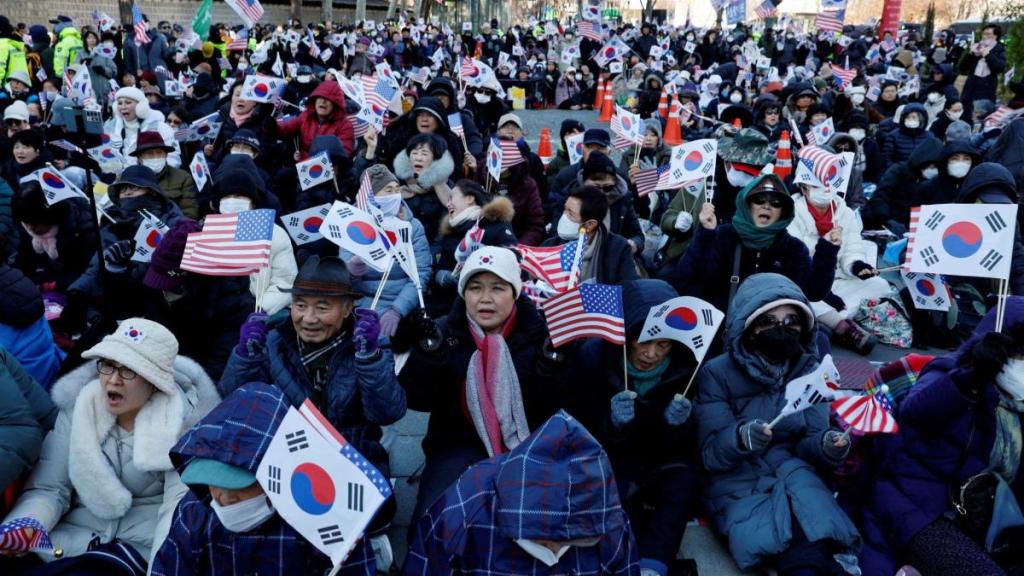In an unprecedented turn of events, South Korean President Yoon Suk-yeol’s declaration of martial law was swiftly reversed within hours, sparking political upheaval and opposition mobilization.
The martial law, announced late at night, was justified by President Yoon as a measure to protect the nation from “North Korea’s communist forces” and to neutralize anti-state elements. However, the decision triggered fierce resistance from multiple quarters, including opposition parties, the public, and even the military, forcing the president to retract his orders.
A Bold, Yet Brief, Declaration
Martial law in South Korea had not been imposed in over four decades. Yoon’s declaration came at a time of escalating political tension, particularly within the country’s legislature. The South Korean president’s party, while holding the executive, was in a minority in the National Assembly, with opposition parties blocking key government proposals, including the annual budget. Most notably, the opposition had initiated impeachment proceedings against him, accusing him of corruption and mismanagement. Faced with the threat of impeachment, Yoon sought to impose martial law, a drastic step that would have granted him greater control and sidelined the opposition.
The move was immediately met with resistance. Army vehicles surrounded the Parliament building, but opposition lawmakers defied the military presence, breaking barricades and entering the assembly to vote against the president’s decision. Simultaneously, thousands of South Koreans took to the streets of Seoul in protest, denouncing the authoritarian measure. The protests were large enough to force the military to retreat, signalling the immense public dissatisfaction with Yoon’s actions. Within hours, President Yoon announced the reversal of the martial law, citing the withdrawal of opposition impeachment efforts as a key factor in his decision.
The Impeachment Threat and Political Fallout
The lifting of martial law was not the end of the political crisis. The opposition, particularly the Democratic Party of Korea (DP), swiftly pivoted towards impeachment. They accused President Yoon of treason and dereliction of duty, especially in light of his attempts to centralize power amid mounting scandals. Given the ongoing disputes within the ruling party itself, the opposition stood a good chance of securing the necessary two-thirds majority to proceed with impeachment.
In the event that the motion passes later this week, Yoon’s powers would be suspended, and the prime minister would temporarily assume the role of acting president. The case would then be referred to South Korea’s Constitutional Court, which would have the final say. If the court approves the impeachment, Yoon would be removed from office, and a presidential election would be held within 60 days. If the court rejects the impeachment, Yoon could return to office and complete his term.
The impeachment process is significant in South Korea’s political landscape, as it underscores the ongoing instability within the country’s executive leadership. It also highlights the deep divisions between the ruling and opposition parties, with some members of Yoon’s own party already speaking out against his decision to declare martial law. These divisions are symptomatic of a broader pattern of political volatility that has plagued South Korea for decades.
Historical Context of Political Instability
South Korea’s political history is marked by a series of tumultuous events that have shaped its current political climate. Since its establishment in 1948, South Korea has experienced military coups, authoritarian rule, and widespread corruption among its leaders. The most notable period of martial law occurred in 1980, following a military coup led by General Chun Doo-hwan, which resulted in widespread violence and repression. Although South Korea transitioned to democracy in the late 1980s, political instability has remained a constant feature, with frequent allegations of corruption, power struggles, and imprisonment of former leaders.
Presidents in South Korea have faced extreme consequences for their actions, including impeachment, imprisonment, and even assassination. Notably, President Park Chung-hee was assassinated in 1979, while his successor, Chun Doo-hwan, was sentenced to death in 1996 after his presidency. More recently, former President Park Geun-hye was impeached in 2016 and sentenced to a long prison term for corruption. These examples underscore a recurring theme of political volatility and the harsh penalties faced by South Korean leaders who fall out of favour.
“The current situation involving President Yoon Suk-yeol is a continuation of this pattern of political instability. While Yoon’s presidency was initially marked by efforts to stabilize relations with North Korea and strengthen ties with the United States, his approval ratings have plummeted due to corruption scandals and an increasingly polarized political climate,” explains Neeraj Rajput, senior war correspondent and the only Indian to have reported from the DMZ.
According to Rajput, “The opposition’s efforts to impeach President yeol are part of a broader trend in which South Korean leaders, even those who have been democratically elected, face significant challenges to their authority.”
The International Dimension
The imposition of martial law and the ensuing political crisis also take place against the backdrop of ongoing tensions with North Korea. The Korean Peninsula has been divided since the 1940s, with South Korea aligning with the United States and North Korea being supported by China and Russia. The Korean War (1950-1953) solidified this division, and since then, relations between the two Koreas have been marked by hostility, periodic skirmishes, and diplomatic manoeuvring. South Korea has consistently accused North Korea of provocative actions, particularly under the leadership of Kim Jong-un, who has pursued nuclear weapons despite international sanctions.
The presence of US forces in South Korea—more than 28,000 American troops are stationed there as part of a mutual defence agreement—adds another layer of complexity to the situation. The US provides a nuclear umbrella to South Korea, making it a critical ally in the region. However, domestic instability, such as the events surrounding the martial law declaration, could undermine South Korea’s position in regional and international diplomacy.
Update: According to reports, as of today (Dec 4, 2024) all senior-level presidential secretaries, including the national security chief, policy chief, and the presidential secretary, have resigned from their positions.

